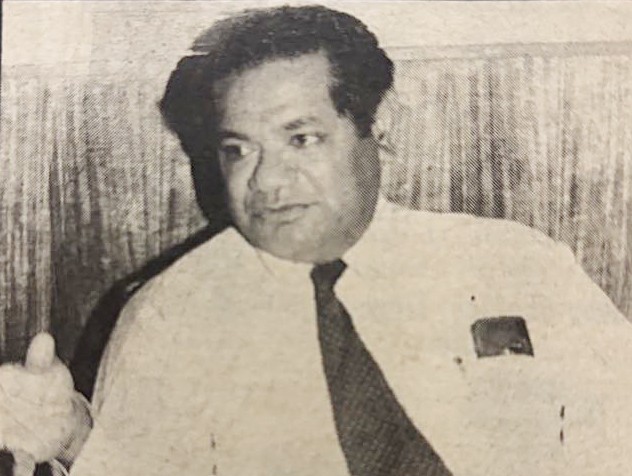On Saturday December 10, 1983, The Fiji Times published a front page article titled ‘Jobs will go, says minister’ (sub head: Grim warning to civil servants on pay claims).
The article stated that some civil servants will lose their jobs when the government starts paying its employees higher salaries next year, the new Minister of Finance Mosese Qionibaravi warned.
“There’s no two ways about it,” Mr Qionibaravi told The Fiji Times in his Suva office. “There will have to be severe retrenchment.”
Parliament meets next Thursday in emergency session to debate a Bill asking for $5.2million, which will fund a $300 across the board payment for every civil servant before Christmas.
The $300 bonus is an initial payment.
The balance of wage increments and back pay will be paid next year in a package still to be worked out by the government and the Fiji Public Service Association.
Mr Qionibaravi made it clear the government was not going to increase the total amount of money it paid to its civil servants.
What this means is that fewer employees are going to be getting more money,” he said.
“We have emphasised this point to the FPSA – there will have to be an equivalent amount of redundancies (to compensate for the increase in the wages bill),” Mr Qionibaravi said.
The pay rise is the result of the Nicol-Hurst Report on pay and job gradings in the civil service. The FPSA demanded that it be implemented immediately, backdated to January 1982.
The report is the subject of a dispute between the government and the union, which is being looked into by the Permanent Arbitrator, Professor John Young.
If the report was implemented, Mr Qionibaravi said, the Government’s total wage bill would rise by about $10m from its level of $168m a year.
“There is no way we can wear that,” the minister said.
Implementing the report plus back pay for almost two years would cost the government $25million next year, he said.
“It will be extremely difficult – in fact, impossible – to make that payment in one lump sum,” Mr Qionibaravi said.
A mini budget some time next year was a possibility, the minister said.
“We will continue to review and evaluate our position through the year,” he said, “if circumstances worsen, tighter measures might be needed.
“I am not holding much optimism for 1984 – there is not much latitude for optimism.”
The prime minister, Ratu Sir Kamisese Mara, averted a nationwide civil servants’ strike last weekend by working out a compromise with the unions on payment.
At a press conference on Thursday, he suggested the balance after the $300 payment could be paid to civil servants in two amounts. Payment might include Government bonds, he said.
Mr Qionibaravi said negotiations with the union would start soon after the arbitration award was handed down.
Cabinet’s decision to agree to the implementation of the report is understood to have caused the resignation of Mr Qionibaravi’s predecessor, Charles Walker, on Wednesday.
The Supplementary Expenditure Bill to cover the $300 payment to civil servants was supposed to have been considered yesterday morning, soon after the House of Representatives began its sitting at 9.30am.
Consideration of the Bill was put back until Thursday at Mr Qionibaravi’s request.
He told The Fiji Times that he needed more time to prepare.
The Senate sits next week from Monday to Wednesday, leaving Thursday the earliest day for the House of Representatives’ emergency session.



